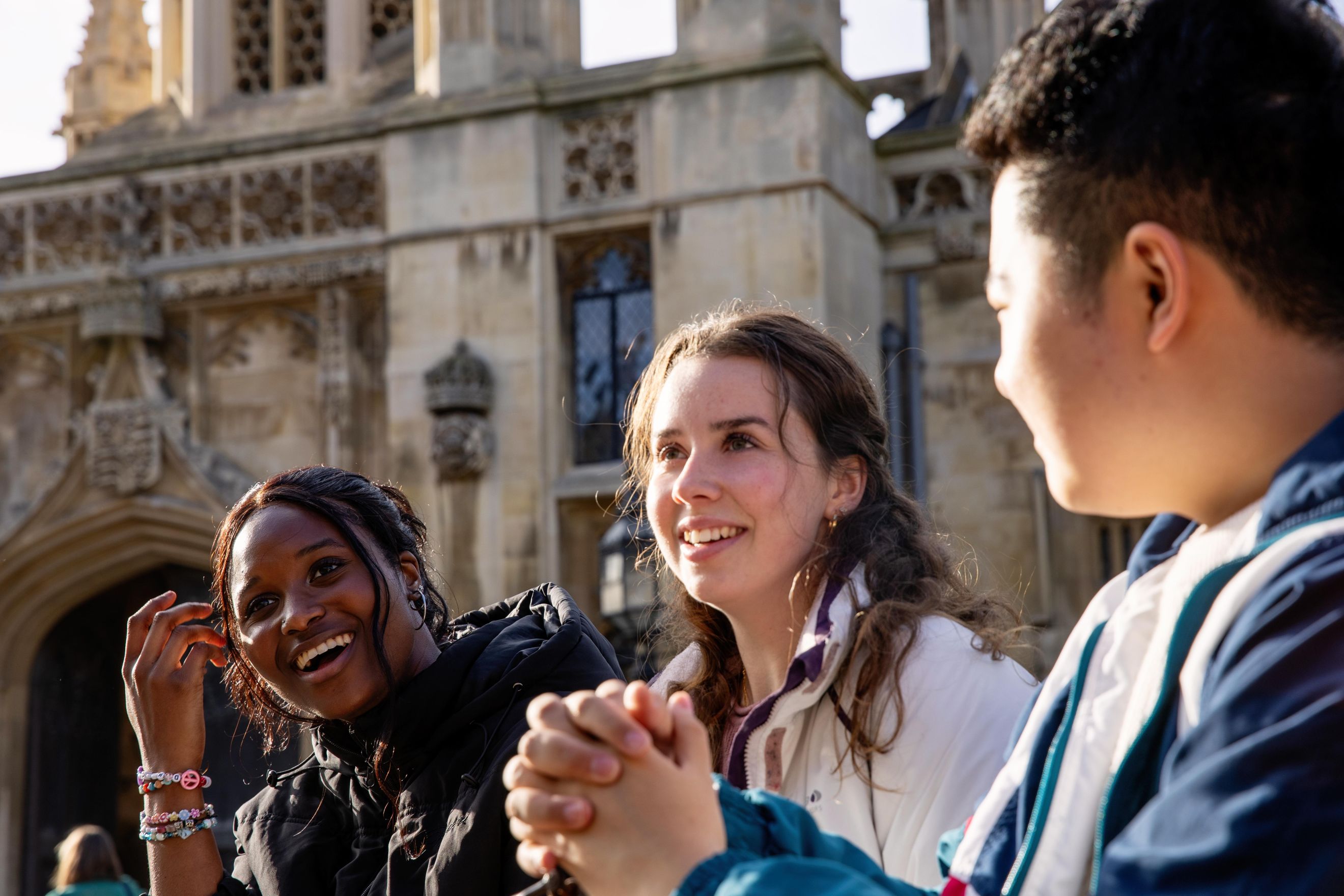

Undergraduate study
King's excels in ensuring students are properly equipped for their educational journey and makes a genuine effort to level the playing field. I've met friends and members of staff I'll remember for life.
Joel, Natural Sciences student
Build lasting friendships
With a diverse range of activities, societies and events, finding the right community for you is easy.
King's in numbers
583
years old
451
undergraduate students
1972
King's became one of the first formerly all-male Cambridge colleges to admit women
85%
of undergraduates came from state schools in the 2024-25 admissions round
Explore undergraduate life at King's

Questions?
Have questions about applying to study at King's? Take a look at our Admissions FAQs page! If that doesn't have the answer, get in touch with our friendly Admissions team.












